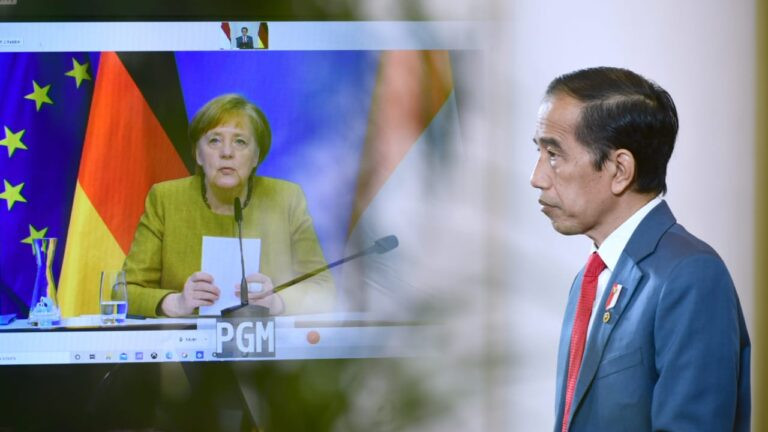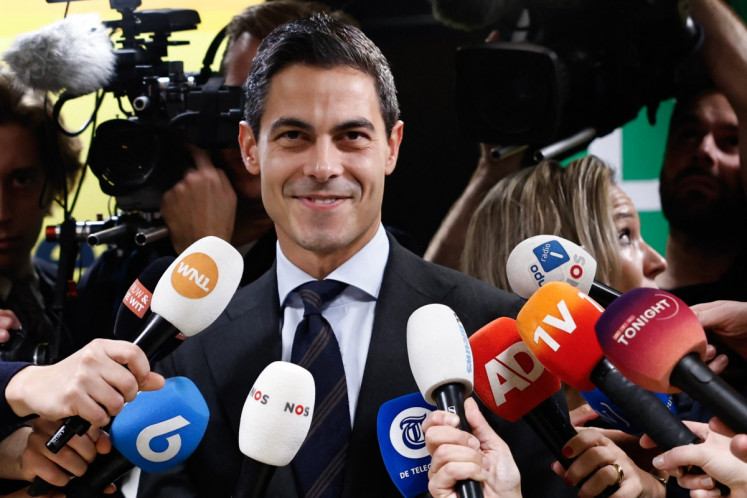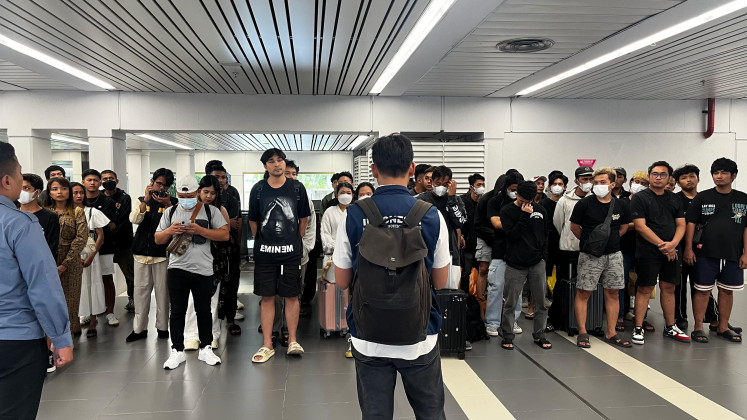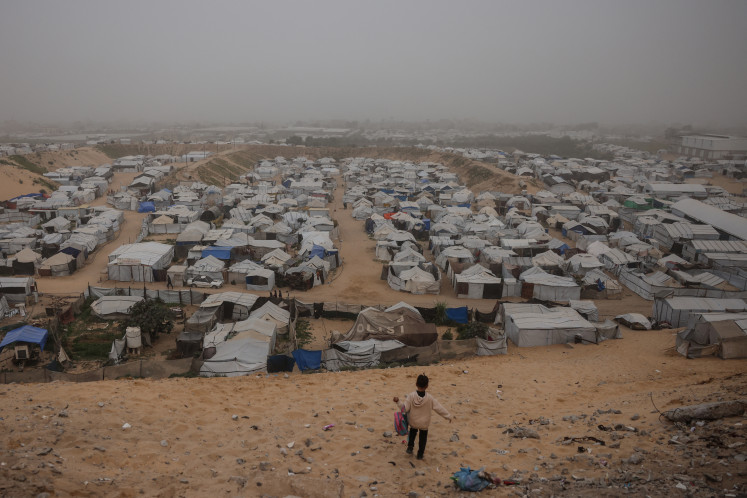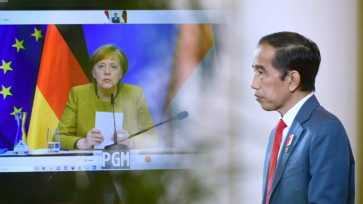Popular Reads
Top Results
Can't find what you're looking for?
View all search resultsPopular Reads
Top Results
Can't find what you're looking for?
View all search resultsTo Zoom or not to Zoom: Diplomats face tough choice between convenience, personal contact
Almost two years since COVID-19 broke out in China, world leaders and diplomats have reached an awkward point where they must consider the option of traveling to meet with their foreign counterparts to maintain bilateral ties amid the easing pandemic.
Change text size
Gift Premium Articles
to Anyone
A
s the world gradually reopens after being pushed into silos due to the COVID-19 pandemic, governments are trying to find the right balance between embracing full digital engagements and returning to more personal face-to-face interactions, a forum on digital diplomacy has found.
Almost two years since the first COVID-19 outbreak in Wuhan, China, world leaders and diplomats have reached an awkward point where they must consider the option of traveling to meet with their foreign counterparts to maintain bilateral ties, if only for specific occasions.
President Joko “Jokowi” Widodo, for instance, finally left the country after some 20 months to go on a three-nation tour to attend the Group of 20 Summit in Italy and the United Nations Climate Change Conference (COP26) in Scotland, followed by a bilateral visit to the United Arab Emirates.
Other leaders, meanwhile, have opted to continue participating in various high-level meetings online, including by sending prerecorded video statements.
Organizers of COP26 drew unwanted attention after they reportedly blocked Chinese President Xi Jinping from making a video statement. Xi is one of the most high-profile global leaders to have decided to continue engaging with foreign partners virtually, having missed COP26, the UN General Assembly and even a recent summit with United States President Joe Biden.
Previously, digital tools were mostly considered a means for public diplomacy, Foreign Minister Retno LP Marsudi said, but as nations started imposing travel restrictions following the World Health Organization’s COVID-19 pandemic declaration in March last year, diplomats were forced to rely more on technology, be it through email, video conferencing applications or social media.
Retno said the UN Security Council was already voting on resolutions via email, a significant leap from the tradition of taking a physical vote at the council chamber in New York, in the US.

